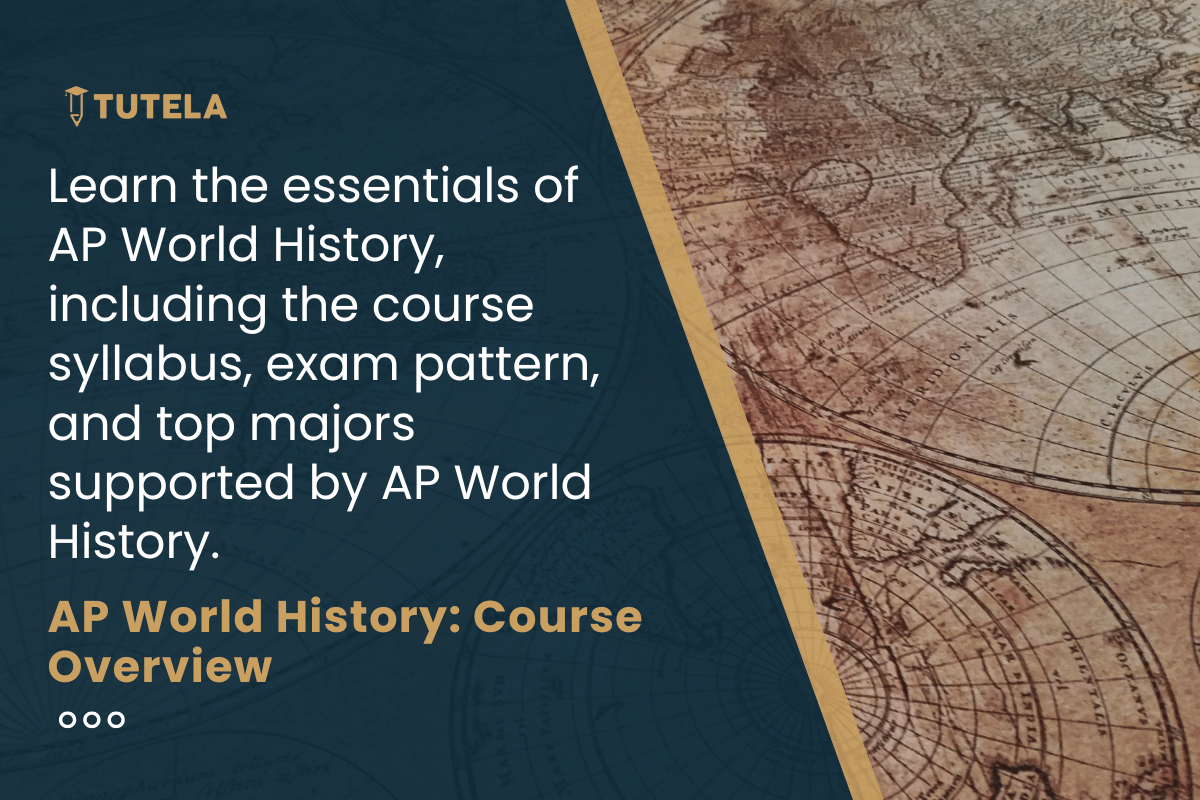
AP World History is a comprehensive course that helps students explore the history of world history, historical developments, and processes from 1200 CE to the present. The AP World history course offers valuable insights into how civilizations have evolved, interacted, and influenced one another over time. Whether you're interested in the rise and fall of empires, the impact of revolutions, or the process of globalization, AP World History provides essential knowledge and skills for understanding the world today. If you want to know about AP Classes, refer here for Gurgaon and Mumbai. The AP World History Exam is on 8th May 2025.
Understanding the history of world history and trends is crucial in today's interconnected world. AP World History helps students develop critical thinking skills as they examine historical evidence, analyze complex relationships, and construct evidence-based arguments. This AP World History course prepares students for college-level studies and helps them become informed citizens who can comprehend the historical context of current global issues.
| Unit Name | Topics Covered | Weightage in Exam |
| Unit 1: The Global Tapestry |
| 8-10% |
| Unit 2: Networks of Exchange |
| 8-10% |
| Unit 3: Land- Based Empires |
| 12-15% |
| Unit 4: Transoceanic Interconnections |
| 12-15% |
| Unit 5: Revolutions |
| 12-15% |
| Unit 6: Consequences of Industrialization |
| 12-15% |
| Unit 7: Global Conflict |
| 8-10% |
| Unit 8: Cold War and Decolonization |
| 8-10% |
| Unit 9: Globalization |
| 8-10% |
| Section | No. of Questions | Duration | Weightage | Details |
| Section I: Multiple Choice | 55 questions | 55 minutes | 40% | Covers a broad range of historical topics and themes. |
| Section II: Short Answer | 3 questions | 40 minutes | 20% | Requires concise answers to historical prompts |
| Section III: Document-Based | 1 question | 60 minutes | 25% | Includes a 15-minute reading period; emphasizes document analysis and crafting arguments. |
| Section IV: Long Essay | 1 question (choice of 2) | 40 minutes | 15% | Focuses on historical thinking skills; requires analysis and argument development. |
1. History: A natural progression from AP World History, focusing on the study of historical events and processes.
2. International Relations: Examining political, economic, and cultural relationships between countries.
3. Political Science: Analyzing systems of governance, political activities, and political entities.
4. Sociology: Studying social behavior, society, patterns of social relationships, and culture.
5. Anthropology: Exploring human societies, cultures, and their development.
6. Archaeology: Investigating ancient societies through material remains.
7. Cultural Studies: Understanding cultural phenomena and its impact on societies.
8. Economics: Analyzing production, consumption, and transfer of wealth.
9. Global Studies: Examining global issues from interdisciplinary perspectives.
10. Education: Teaching history and social studies at various educational levels.
AP World History is not just an academic subject but a vital field of study that prepares students to understand the complexities of our global past. By engaging with the content of this course, students are well-prepared to pursue various academic and career paths that contribute to a more informed and interconnected world. Whether planning to major in a related field or simply wanting to gain a deeper understanding of historical processes, AP World History offers a solid foundation and an invaluable perspective on the events and forces that have shaped our world.
1. What are the main topics covered in the AP World History syllabus?
Ans: The AP World History syllabus covers a wide range of topics, including the global tapestry, networks of exchange, land-based empires, transoceanic interconnections, revolutions, consequences of industrialization, global conflict, the Cold War and decolonization, and globalization.
2. How is the AP World History exam structured?
Ans: The AP World History exam consists of four sections: multiple-choice questions (MCQs), short-answer questions (SAQs), a document-based question (DBQ), and a long essay question (LEQ). The MCQ section has 55 questions and lasts 55 minutes, covering 40% of the exam. The SAQ section has 3 questions, lasts 40 minutes, and covers 20% of the exam. The DBQ section has 1 question, lasts 60 minutes, and covers 25% of the exam. The LEQ section has 1 question, lasts 40 minutes, and covers 15% of the exam.
3. Why is AP World History important for students?
Ans: AP World History is crucial for students as it helps them understand historical events, analyze complex relationships, and develop critical thinking skills. This course prepares students for college-level studies and enables them to comprehend the historical context of current global issues.
4. What are the potential career paths after studying AP World History?
Ans: Students who study AP World History can pursue various career paths, including history, international relations, political science, sociology, anthropology, archaeology, cultural studies, economics, global studies, and education.
5. How can AP World History help in understanding and addressing global historical challenges?
Ans: AP World History provides students with a solid foundation in understanding historical events, processes, and their impact on the modern world. By engaging with the course content, students are equipped to address global historical challenges, analyze contemporary issues through a historical lens, and contribute to a more informed and interconnected world.
TutelaPrep’s College Navigator allows students to search for colleges based on their preferred country and course. Not only that, it also provides valuable insights into each college’s specific admission requirements for those exams. Through College Navigator, you can even connect with alumni at your chosen colleges to get a firsthand feel for campus life and academics.
We hope this article helped you with the subject knowledge. Reach out to us by filling out our assistance form if you need any help with the preparations.